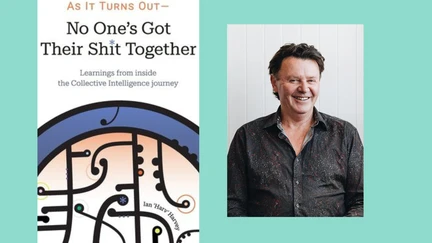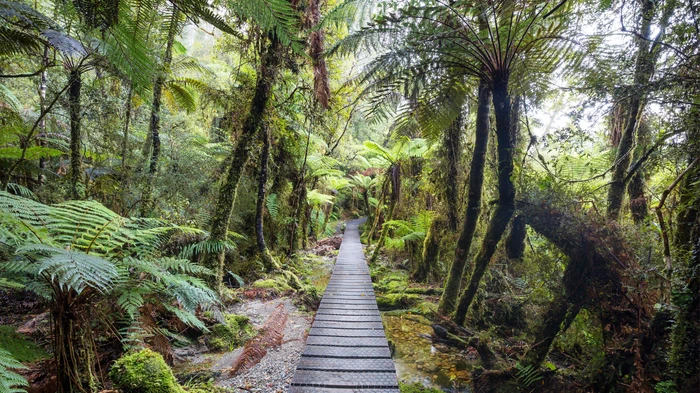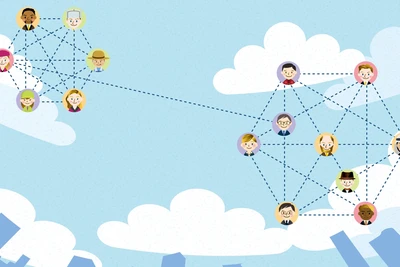Guest post: As it turns out, no one's got their sh*t together - learnings from inside the collective intelligence journey
Sharing his own life experiences in this guest post, Ian 'Harv' Harvey invites us to think differently and let go of the old rules.

Ian 'Harv' Harvey is the founder of Collective Intelligence where professionals from over 70 industries and professional backgrounds, come together in teams of nine, to evolve themselves and others. In this post he shares the introduction to his first book As it turns out - no one's got their sh*t together.
Introduction
If you’ve ever felt like you’re the only one struggling to hold it together, then trust me, you’re not.
I used to think that everyone else had it all figured out, and that I was the only one who seemed to not know what the big plan was. No one really knows what’s going on. Not the guy at the top of the corporate ladder, nor the influencer with millions of followers, nor the checkout operator at your local supermarket, and definitely not me.
But here’s the thing: Real personal and collective growth happens when we own our imperfections, work together authentically, and challenge ourselves to break free from those old models of success.
As it turns out is the book for anyone who needs to know that we’re all just winging it. Anyone who’s trying to make some sense of all the bullshit, and anyone who’s ready to have a more honest conversation about what it means to live, to lead, to grow. That happens when we work together.
When we’re interconnected, we can achieve things that no one’s thought of. And when you bring people together to support each other, they end up growing themselves too.
The problem, as I see it, is that we know and care more about developing sports teams than we know or care about developing other professions. We’ve gone down the path of maximising profits, and that means plenty of other important ways we measure our lives – like happiness, sustainability, social impact, feeling alive and good about what we’re achieving with our limited time on the planet – have been sacrificed.
We have ways of working that aren’t sustainable, and are causing burnout and dissatisfaction with our lives, and a grim future ahead.
If you want a good metaphor for our future, then look to pine. It’s cheap and reliable for building and fuel, so we grow it in spades. But in the interests of efficiency, scale and profit, we’ve planted hundreds of thousands of acres of this crop as monocultures – literally the one species in repeating rows over huge blocks of land. It’s easier to manage and harvest this way. And all the inter-dependents – the banks, the farmers, the fertiliser sales reps – want predictability, regularity, and consistent outputs. But a monoculture doesn’t thrive, or produce the best growth.
Nature wants diversity. Naturally-occurring forests are complex, with different flora, fauna and fungi finding their niche. The growth of ngahere (native forests) are unpredictable, but the long-term health is better, the growth richer, and the plants and soil thriving.
In monocultures, the plants still grow, but they lack strength. The wood is weak. It lacks resilience.
So I wasn’t surprised, in the aftermath of Cyclone Gabrielle in early 2023, to see acres of plantations where the semi-mature pines had been snapped in half by the winds. The interests of rapid, straight growth had set the pines up to fail under the stress of a major weather event.
The nearby ngahere? Unaffected by the cyclone.

The current path we’re on is the same as those pine plantations. And we know it. The gap between the rich and poor is growing. Oceania in particular is going backwards when it comes to food security (i.e. knowing that we’ve got enough resources to keep us all well fed at all times). We’re starting to see the loss of insect species – an early sign of ecosystem collapse. Habitats are degrading at an incredible rate. Water is becoming a scarce resource. We’re in a worse situation systemically than we’re prepared to admit.
We know that the old models of dominance and control, and power in a few people’s hands, haven’t worked. We have created solutions that benefit only a few.
That is, unless we do something about it now.
Living systems are complicated. They thrive off interconnectedness, and often off incredibly diverse species. To create different outcomes for the world, we need to look to nature for our business models and our lives, and take a different approach to what ‘success’ means for all of us.
I founded Collective Intelligence in 2008. I had an idea: foster authentic growth and create a sense of belonging among our members. I wanted to see leaders developed, supported, and challenged by people from all kinds of industries, outlooks, and stages of life. And I wanted to draw on nature’s principles to guide us.
We curate and create an environment for existing and emerging leaders, then facilitate better conversations and help those leaders grow in their confidence and abilities. We respond to what’s in front of us. We’re okay with uncertainty. We stay open. We keep our egos in check, too. And we’re always learning.
We do it slowly, carefully, gently, by sharing stories that you wouldn’t normally share. We cultivate a high degree of trust by demonstrating and creating spaces where people can be vulnerable (under the Chatham House Rule, of course).
And slowly, like a ngahere emerging from a one-farmed block of land, a resilient and dynamic new leadership appears.
I’ve had the immense privilege to work with over a thousand people across the years, and I wanted to share some of those learnings from my time, to help the next generation realise that behind every cool and successful person’s façade is a lot of confusion, uncertainty and helplessness.
Because, as it turns out, no one’s got their shit together.

But there’s also a lot of hope. Life throws a lot of challenges at us. Not all of them come with powerful personal learnings or clever phrasings. But give it enough time, and you’ll see a lot of it is interesting, and funny, and much better when you give it a go.
This is a messy book. You’re going to read a messy story. It’s not a self-help or motivational book. It’s certainly not a business book. There are lots of learnings about self-help and motivation, and about business, but that’s not where this book belongs. This is my story, and the learnings that have come with that.
Business books about personal development or personal stories tend to be a lot about maximising potential or building up an aura. Leadership events tend to be the same. Corporate people tend to follow corporate leaders. Farmers are in farmers’ groups. We tend to want to dress up and follow the pictures of success in our fields. And that means there’s a lot of ego, bragging, and loud voices. That’s pretty expected. We want to learn how they became successful, after all, and copy that.
But all that’ll ever give us is the status quo, over and over.
And we know that that’s not good enough any more.
We learn more from failures and in moments of vulnerability than we do during successes. We learn a lot from the quieter voices. People struggle. We don’t grow well – let alone thrive – in a monoculture. We need diversity around us to grow strong, resilient, and healthy – in business, life, and everything around it – because it asks more of us.
And that takes time. I know it.
I’ve built each chapter in this book around my own experiences, and the real people and situations I’ve encountered along the way, in the hopes that it might shine a light on some of the parts of life that people don’t really talk about. The story starts out with my early years in rural Aotearoa New Zealand, before looking at the unspoken secrets to good relationships and onwards to the founding of Creative Intelligence. From there, I talk about what real leadership looks like, and the glorious failures I’ve had as a professional. In the last third of the book, we cover some of the important lessons I’ve learned later in life: that vulnerability is where real growth happens, that diversity is the secret sauce to success, and finally, looking directly at the messy truth that no one has it all figured out.
My biggest hope for you reading this book is that you’ll feel a bit more comfortable about the fact that life throws all kinds of weird shit at you. And you’ll remember that you don’t need to do it alone. No one’s got it right, but we’ve got a better change of figuring it out together. And the sooner we embrace that truth, the sooner we can start growing.
I would love to offer you a story of success, but what you’ll find here is an invitation to think differently. It’s time to let go of the old rules, face uncertainties, and grow alongside others in ways we never expected.
As it turns out, none of us know exactly what we’re doing. But together, we can build something extraordinary.
As it turns out - no one's got their sh*t together : learnings from inside the collective intelligence journey by Ian Harvey, 2025